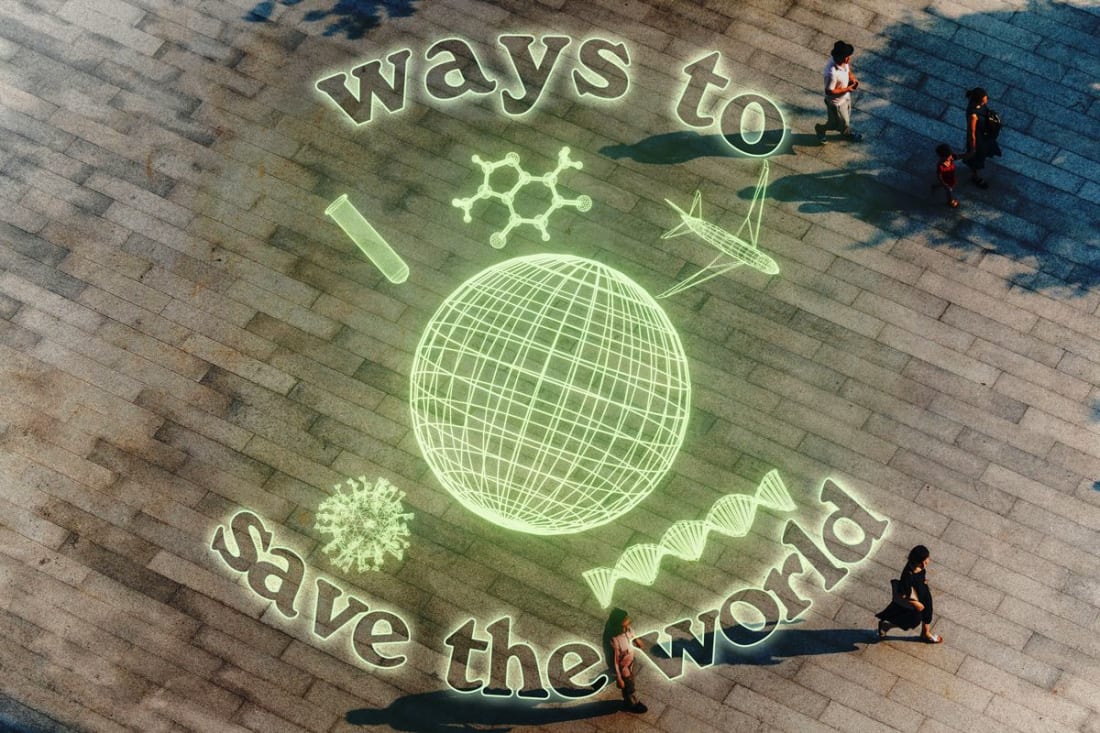Growing food out of thin air: a way to save the world
Want to feel good about the environment? Ways To Save The World is here to show you ideas and innovations that are changing climate for the better
Want to feel good about the environment? Ways To Save The World is here to show you ideas and innovations that are changing climate for the better
Imagine if there was a device that could just make any food you wanted for you? You just typed in what you wanted to eat and then it went all beep beep beep, et voilà. The food was right there before your eyes!
Sadly that doesn’t exist outside of our dreams right now. But something pretty cool does, or is about to. It’s called Solein, and while it won’t magically make food appear, the product itself is grown from ‘thin air’, as we say.
How can we grow food from the air?
Fermentation, technically, something humans are very good at, from beer to kimchi. We’ve fermented things for ages. Here, instead of adding yeast to something sugary, the microorganism are put in water which is taken from the air -usually done by cooling air until there’s condensation- then the microbes eat tiny bubbles of CO2 and nutrients including nitrogen, calcium, phosphorus, and potassium, all of which plants also use to grow. Then the bacteria grows and multiplies, eventually becoming a dry powder. This bioprocess doesn’t take up much land at all, and it can create an infinite food supply. It is cruelty free, doesn’t disrupt forests, and doesn’t use any fertilisers.
Who discovered this?
A team of clever people called Solar Foods. They’re based in Finland.
How will Solein save the world?
Well we have lab-grown foods at the moment, from Quorn (the meat substitute) to Nature’s Fynd (which makes a great cream cheese substitute and ‘breakfast patties’) they generally require fermentation and feeding bacteria. This replaces the need to use animals and even some plants as a food source. Not only does this suit many people's ethics, but it also means we can make far more food in a smaller piece of land. This is important because if our global population continues to grow, we could easily find we don’t have enough space to grow food to feed people. But also, we could rewild land that doesn’t grow food very well.
All of these foods are technically highly-processed foods, though. While we’re generally meant to remember that highly-processed food isn’t necessarily the healthiest (even if it’s plant-based and made in a lab), that’s a separate debate to the fact that these products are more sustainable, and ethical. In some cases, vegan meat substitutes contain less saturated fats (generally said to be unhealthy) than the food they are replacing too, especially red meats.
Well it sounds impressive, but what’s so special about Solein?
Whereas other foods mentioned are more sustainable than animal products and avocados, for example, they do still require some effort to grow. Fermented foods have to be fed to keep fermenting (usually they’re fed sugar) and the actual processing too, takes up energy. Solein does require energy, but the energy used is completely renewable. Air, also completely renewable, feeds it. So essentially, provided we have a way of generating clean energy, and we have air, this food can be made.
Solein is also supposedly very versatile as a food. Protein powders (which are the most comparable thing we have at the moment) generally involve using whey (essentially that watery stuff that separates from your greek yoghurt), or are plant-based and made from things like peas, brown rice, hemp, and soy. They tend to carry a flavour or behave a certain way in food, lending them to be consumed in one of a few ways: drank like a milkshake, stirred into porridge, or used as a replacement for flour in pancakes, cakes, and more. It has a slightly savoury note, but nothing at all overpowering.
Solein is a powder too, and looks a bit like the colour of an egg yolk. But the company behind it has made into a meat-like substance, cream cheese, milk, egg whites, and more. These alone help it become the foundation of a lot of foods, flour makes bread, pasta, pancakes, egg whites are in everything from cocktails to meringues. You could feasibly make bread and cream cheese from it, and spread one on the other. Woah. In addition to just being protein-heavy, Solein is also rich in fibre, contains a good few vitamins and minerals, and some healthy fats too. On paper, it’s a bit of a powerhouse.
Also, it’s literally taking CO2 out of the atmosphere (which we need) and turning it into food (which we need). A really good win-win. The initial hurdle is, like with many good ideas, it’ll cost a lot of money to onboard. But when it is up and running, we just need to keep turning air into food, which is cheap – and gets cheaper with scale and as the planet collectively turns to green energy sources. There’s 100x less water used than there is in growing plants, according to Solar Foods’ website.
How can I get involved?
Well the product isn’t quite on shelves yet, but Solar Foods is building a factory in Helsinki, Finland. They hope that this will be able to produce enough of the powder for four to five million meals a year. So when that comes around, have a go at eating it and tell your mates.



